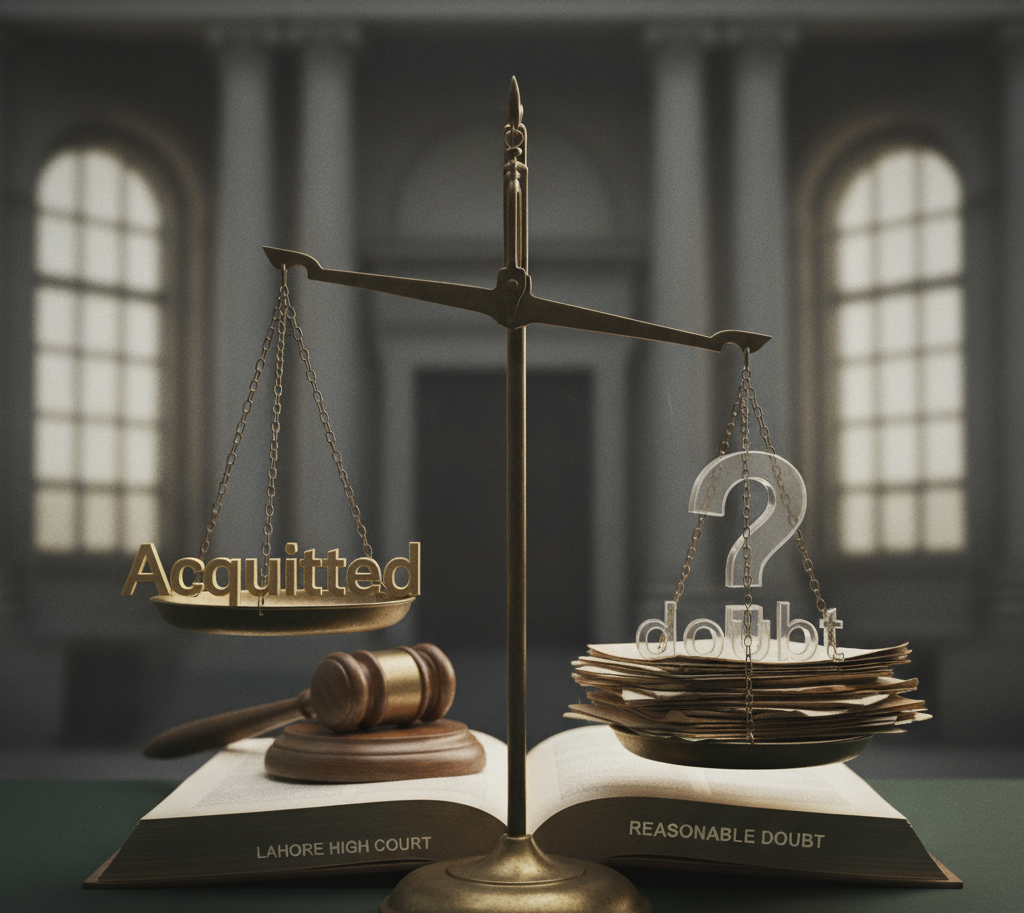LAHORE – A single-member bench of the Lahore High Court comprising Justice Abher Gul Khan, has overturned a murder conviction, acquitting the accused on the grounds that the prosecution failed to establish its case beyond the shadow of reasonable doubt. The ruling, which allowed the appeal of the convict Sajjad Ali, sets aside the life imprisonment sentence and compensation order previously imposed by the trial court in the matter.
The judgment, spanning 15 pages, is a definitive commentary on procedural and evidentiary standards, systematically detailing why the prosecution’s narrative, stemming from a fatal incident in a godown, was unreliable. The case arose from an incident where the complainant’s husband was found dead inside a godown. The prosecution alleged the killing was motivated by a monetary dispute and claimed the accused was found at the scene holding a knife. Conversely, the defence maintained that the accused was himself an injured party who had been falsely implicated.
Glaring Investigative and Evidentiary Failures
The High Court meticulously addressed a series of legal issues, finding that a cumulative effect of failures had rendered the entire prosecution case doubtful:
- FIR Integrity and Delays: The Court noted the failure to produce a crucial witness to establish the timely registration of the FIR. This was compounded by an unexplained 18-hour delay in conducting the post-mortem, which cast serious doubt on the promptness and credibility of the reporting process.
- Withholding of Material Witnesses: The investigation was deemed defective due to the withholding of independent witnesses (such as the godown owner, Muhammad Shakeel) and the failure to associate private persons with the crime scene, suggesting the suppression of evidence that might not have supported the prosecution.
- Motive Unsubstantiated: The court found the prosecution failed to substantiate the alleged monetary dispute with any independent proof (like a receipt or witness testimony), causing the entire motive of the occurrence to collapse.
- Witness Credibility: The Court rejected the testimony of closely related witnesses, finding their version of the accused remaining at the crime scene and confessing to be highly improbable and unnatural. Furthermore, key witnesses made material improvements in their statements during the trial, undermining their credibility.
- Medical and Forensic Gaps: The Court highlighted critical failures related to the accused’s injury:
- The Investigating Officer (IO) failed to collect the accused’s medical treatment records and neglected to examine the medical staff who treated him.
- There was an unexplained four-month delay in the preparation of the accused’s medico-legal certificate (MLC), raising serious doubts about its reliability.
- The forensic report regarding the weapon was rendered questionable as the prosecution failed to establish blood group matching to connect the weapon conclusively to the crime.
The Principle of Acquittal
In its conclusion, the bench firmly reiterated the fundamental legal principle: when assessing evidence, if the prosecution’s case is inherently doubtful, the defence plea need not even be scrutinized. The Court held that the benefit of every reasonable doubt must be extended to the accused, which necessitated the setting aside of the conviction. Consequently, the Court ordered: “Criminal Appeal No.67614 of 2021 is allowed, and by granting the benefit of doubt to the appellant, Sajjad Ali, his conviction and sentence are hereby set aside. He is consequently acquitted of the charge. The appellant is in jail and he shall be released forthwith if not required to be detained in connection with any other case.”





